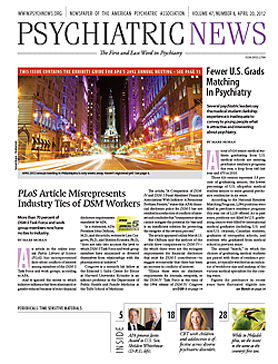The American Board of Psychiatry and Neurology (ABPN) Maintenance of Certification (MOC) Program reflects the ABPN’s commitment to lifelong learning. The mission of the MOC Program is to advance the clinical practice of psychiatry and neurology by promoting the highest evidence-based guidelines and standards to ensure excellence in all areas of care and practice improvement.
In keeping with the evolving nature of the MOC requirements for all physicians, the ABPN’s must remain consistent with the American Board of Medical Specialties’ (ABMS) guidelines. In sensing the growing threats from outside the medical field, the ABMS determined that ABMS specialists within every discipline should be required to meet the highest standards of quality patient health care. In response, the ABMS designed the MOC process. The goal of MOC is for diplomates to reflect on their personal knowledge and performance and commit to a process of improvement and reevaluation of performance measures over a specified time, ultimately leading to improved care for their patients.
Each specialty board within the ABMS adheres to four components in their programs. The four components are designed to assess important physician characteristics: Professional Standing (Part 1), Self-Assessment and CME (Part 2), Cognitive Expertise (Part 3), and Performance in Practice (Part 4). These components are outlined in detail on the ABPN Web site at
www.abpn.com, along with a list of ABPN-approved MOC products for self-assessment, CME, and performance in practice.
Continuous Pathway to Lifelong Learning
Beginning in 2012, diplomates who pass their initial certification or MOC examination will enter into the Continuous Pathway to Lifelong Learning (CP-MOC). Diplomates who passed their initial certification or MOC examination prior to 2012 will not be required to participate in this program, but they may elect to do so.
This year, the ABPN is required to begin reporting diplomates as “Meeting” or “Not Meeting” MOC requirements. Lifetime certificate holders will be listed as “Certified but Not Meeting MOC requirements.” There will be a special note that meeting MOC requirements is not mandatory for lifetime certificate holders. However, lifetime certificate holders may elect to enter the CP-MOC Program by passing an MOC cognitive examination in their specialty.
The CP-MOC Program will assist diplomates to comply with MOC requirements and time frames to facilitate the required annual recording and reporting of MOC participation. Instead of paying a higher fee at the time of the MOC examination, diplomates will pay a much smaller annual fee. This annual fee covers participation in ABPN Physician Folios and includes one MOC cognitive examination in a 10-year period.
The focal point of the Continuous Pathway to Lifelong Learning Program is the ABPN Physician Folios, which offer a single source for personalized information regarding certification and MOC status. There is a large catalog of ABPN-approved MOC products in self-assessment, CME, and performance in practice listed on the ABPN Web site. We strongly recommend diplomates use ABPN-approved products to ensure they meet ABPN MOC Program requirements. For protection against incorrectly advertised MOC products, a diplomate will be required to utilize only ABPN-approved products beginning in 2014. This policy change was in response to diplomates’ frustration at misleading advertised products.
While passing the cognitive examination is still required at least every 10 years, a diplomate’s certification status is dependent upon fulfillment of all four MOC Program components, along with annually logging into the ABPN’s Physician Folios and payment of an annual MOC registration fee.
Future Plans
The ABPN continues to monitor the landscape and gather feedback from our diplomates on the MOC Program. The ABPN strives to give MOC credit to diplomates who are already participating in practice-improvement activities that meet the ABPN MOC Program requirements.
Here are some examples of ABPN’s responses to diplomates’ feedback on MOC:
Our acceptance of institutional quality assurance programs and patient surveys that meet our requirements.
Our plan to ultimately provide Part IV credit for team projects completed at institutions that join a formal Institutional Recognition Program.
Our plan to give credit for one stage of MOC activities (as outlined on the ABPN Web site) for diplomates who complete ACGME-accredited/ABPN-approved subspecialty training and sit for and pass an ABPN subspecialty examination.

MOC information, ABPN Physician Folios, and ABPN-approved MOC products are posted at www.abpn.com/moc. 